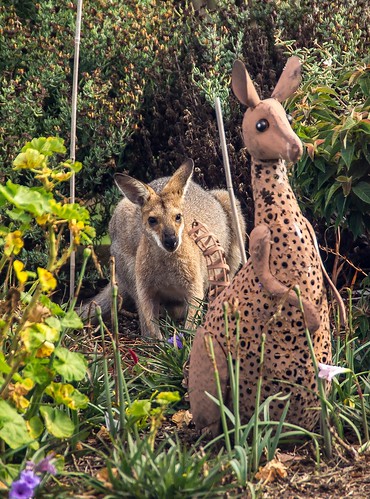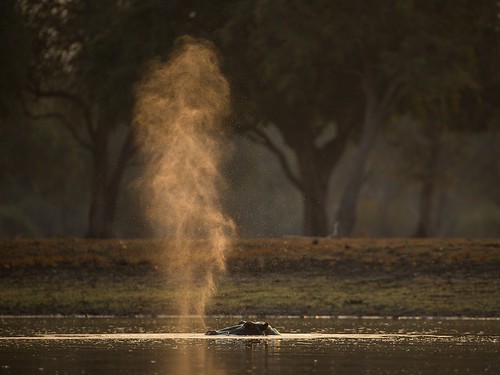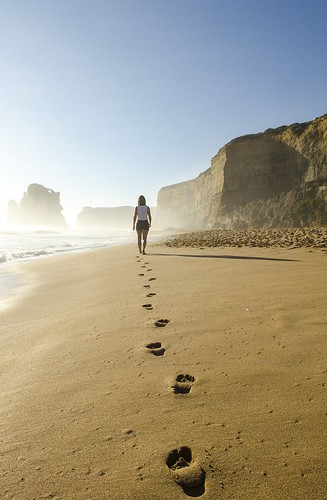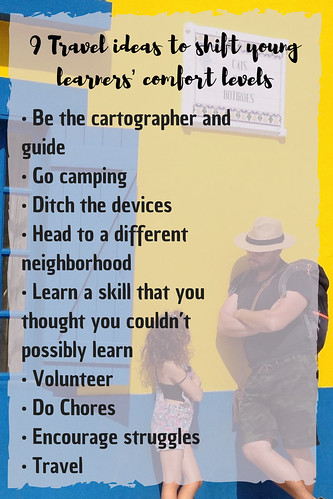Through the Eyes of an Educator: Getting Comfortable with the Uncomfortable
Lately I’ve taken notice of language - the words people choose to use and those that show up time and time again. If you listen, regardless of the situation involved in the discussion, you begin to hear patterns, synonyms, and repetition of emotions wrapped in very specific verbiage. Why do these words appear? Are they always those that are conscious choices, or are there underlying factors at work? Do those factors come from our experiences, our fears, our upbringing, or our lifestyle choices, or do they sneak up out of nowhere and we will never know the ‘why’? How much of those word choices come from how we feel about the world, with what we interact, and of what makes us uncomfortable? How would it change our outlook or choice of words if we could get comfortable with the uncomfortable?

Every child in every classroom (whether traditional or untraditional) sees the world differently. Each has had their own experiences, their own struggles, their own triumphs, and their own difficulties. There are those who learn how to cook at an early age, and others who are not allowed to use the stove until they’re in their twenties. There are those who have lived in one-room apartments, on the streets, in campsites and RVs, in remote cottages and yurts, on farmlands, or internationally, while others grew up in one big house on a large piece of property. Some have been forced to be uncomfortable, while others have spent their entire lives in the land of comfort where the only time the ‘uncomfortable’ ever takes place is with disappointment, injury, disease, or death of a loved one. How do we ebb the flow of the disparity, shrink the gap between the two, mitigate the crisis terminology, and get familiar with the uncomfortable?

Travel. Travel opens us up to different situations and forces us to forge ahead, regardless of things we absolutely cannot control. Luggage gets lost, it rains whenever it feels like it, allergy attacks strike when we least want them to, and sometimes a fever shows up when you’re vacationing in the islands. Shows get sold out before we can buy tickets, spiders show up in the Australian Outback, tour dates don’t line up, remote work can disappear in a heartbeat, conveniences aren’t always available, and not all toilets are the same. Travel puts us in places different to our homes - if we listen and let it, we can get smacked in the face with uncomfortable galore. What happens if we embrace this at a young age, introduce our children to not only the possibility, but, the assurance of that uncomfortable, and broaden those zones of exposure that put us closer to the category of acceptance rather than fear? The uncomfortable is guaranteed - how would the world be different if we could accept it instead of being frightened by it?

At ten, I went to sleep away camp and was petrified of being away from home - today, it was one of the best gifts my parents gave me. At 18, I went away to university - again fearful then, yet today grateful for the experience. We met with scorpions in the Okavango Delta, coyotes in Kruger National Park, got sick and dehydrated in Mexico, have been chased by hippos, and needed a doctor’s care while on the road. Many have encountered far more dire circumstances, like children getting severely sick, airlift medical assistance necessities, no access to clean water or skilled medical professionals, and even encountering the death of loved ones amidst the journey. How does the outlook and fear levels of adults or adult children change if more of the uncomfortable is experienced at a young age? Can anxieties lessen - and the response time of crisis to clarity - shrink? Isn’t it possible that having to search for firewood for your campsite or figure out how to brush your teeth without access to clean water at a young age makes doing the same at an older age that much less stressful, less frightening, and less anxiety-producing?

How do we take these lessons and provide them to our kids? How can we broaden their experience without always having to shove them in ‘Survivor’ type experiences? Travel. The mindset itself creates endless possibilities. If the idea of our parents and their parents before them was to make our lives easier, more comfortable, and better than the generation before, the idea of adding discomfort is far from the top of the list. If we invite any level of shift, refocus, luxury removal, or slight change in the lives of our youth, then perhaps as they age, grow, and find their own journey, their response to that change and discomfort will be far less chaotic than it would have been otherwise. Travel and the mindset it brings can help.

Whether you live a nomadic lifestyle, are on your third passport, or have never left the confines of your home region, there are ways to embrace travel and elevate the uncomfortable. We’ve all grown accustomed to certain levels of ease, and when they’re removed, there’s a tendency towards freak out reactions. Encouraging the uncomfortable on a more regular basis lends assistance to the concept of accepting change, learning to respond rather than react, and the mindset that the uncomfortable although often difficult can lead to greater development. Engaging your learners and students in these types of activities and mindfulness mindsets at an early age will fill them with life skills and enrich their ability to deal with whatever life throws at them. Travel is far more than leaving home - there’s a change that happens that provides a world of endless possibilities, magic, and wonder. Along the way there will be bumps and bruises - knowing how to navigate the waters leads to skillful adventurers and richer journeys. Embrace the uncomfortable - the calm and magic will follow.
9 Travel ideas to shift young learners’ comfort levels
Be the cartographer and guide
• Read the Google directions instead of listening to the one on your car/phone app.
• Use an actual map to find where you’re going - no digital devices allowed
• Geocache
Go camping
• Have your budding chefs cook your meal
• Go to a spot without any mobile WIFI/CELL service
• Learn ‘survival’ skills
• Ditch the gas and electric and figure out food and drink over the fire
• Have your young learners source the firewood
• Use nature for your source of food, energy and bathroom needs
• Leave the car behind and hike in
• Navigate by the sun and stars
Ditch the devices
• Play board games
• Read a book/magazine
• Stargaze
• Embrace your creative side - invent, play, design
• Make your own fun
Head to a different neighborhood
• Wander a spot with signage in a language other than your own
• Try a new restaurant with a cuisine you’ve never before tasted
• Take a cooking lesson using spices and flavors different to your own
• Talk to locals and find a way to communicate in shared understanding
• Get lost along the way, ask for help, make your own adventure, be spontaneous
Learn a skill that you thought you couldn’t possibly learn
• Struggle through coursework that is difficult
• Meet with disappointment and fight for triumph
• Find patience, discover perseverance, and inspire diligence
• Uncover information, do your own research, have the difficult discussions
• Earn the badges, fall down and get back up again, make your own phone calls
Volunteer
• Work with others less fortunate than yourself
• Help to make someone else’s day better, easier, happier - find perspective
• Connect with those whose story is far different than your own
Do Chores
• Encourage responsibility and the discomfort in doing things disliked
• Laundry has yet to do itself - even the youngest can participate in some way
• Find ways to include life skill learning even if it’s not the most enjoyable
Encourage struggles
• Let your young minds learn by doing - they may have to falter along the way
• Allow attempts to ‘do it myself’ before stepping in to ‘fix things’
• Permit your young debaters to work things out amongst themselves
• Encourage compromise - you can’t get your own way all the time
• Provide positive feedback and constructive criticism - not everyone gets a trophy
Travel
• Visit a place and a culture completely different than your own
• Spend the night at a friend/relative’s house that is far different than your own
• Put your young adventurers in a spot where they become a minority
• Check out life in the land of your roots
• Go on a journey to a developing country - appreciate the similarities and differences
• Experience different - learn to respect and embrace the changes that exist
• Interact with others you may never before have met
• Challenge your belief systems
• Have discussions with those who disagree with you - remain respectful
Pin for later:

Stacey Ebert, our Educational Travels Editor, is a traveler at heart who met her Australian-born husband while on a trip in New Zealand. Stacey was an extracurricular advisor and taught history in a Long Island public high school for over fifteen years, enjoying both the formal and informal educational practices. After a one year 'round the world honeymoon, travel and its many gifts changed her perspective. She has since left the educational world to focus on writing and travel. She is energetic and enthusiastic about long term travel, finding what makes you happy and making the leap. In her spare time she is an event planner, yogi, dark chocolate lover, and spends as much time as possible with her toes in the sand.
Check out her website at thegiftoftravel.wordpress.com for more of her travel musings.





















